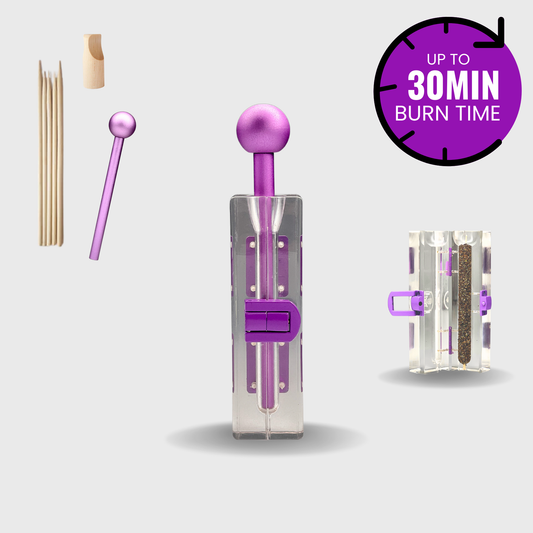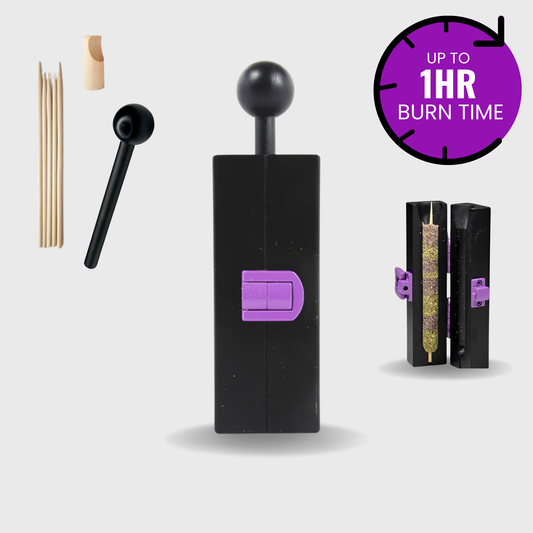⬇️ Prefer to listen instead? ⬇️
- Counties with more veterans have significantly more certified medical marijuana doctors.
- PTSD affects up to 20% of Iraq and Afghanistan veterans, a key cannabis-qualifying condition.
- Access disparities persist—wealthier, rural, and whiter areas get more cannabis care.
- Despite demand, VA still doesn't cover medical marijuana, creating financial and legal hurdles.
- Veteran advocacy is a driving force behind medical marijuana reform across the U.S.
Medical marijuana is becoming a key issue in veterans’ healthcare. Recent research shows areas with many veterans have more cannabis doctors. The rise in cannabis healthcare isn't just because it's legal. It meets real medical needs veterans have after service. Also, veterans have worked hard to make this treatment easier to get.

A Data-Backed Connection: What the Study Reveals
A new study from JAMA Network Open looked at data from 262 counties in seven states (Minnesota, New York, Utah, and four others). This study showed how medical marijuana access differs by place and group. Researchers found a clear link: counties with more U.S. military veterans had many more doctors allowed to recommend medical marijuana.
The report, backed by the National Institute on Drug Abuse (NIDA), found an average of 1.4 certifying cannabis doctors per 10,000 residents. But in counties with lots of veterans, that number went up a lot. This suggests veterans are more likely to look for medical marijuana treatment. And then, having many veterans around encourages more doctors to get approved to recommend it (JAMA Network Open, 2024).
This shows how medical needs, rule changes, and community setup work together.
Why More Veterans Means More Cannabis Doctors
To see why, look at the health problems most veterans face after service. Not many standard treatments work well for them. Medical cannabis is more than just a way to feel better. For many, it's needed to feel stable.
Core Health Issues Driving Cannabis Demand Among Veterans
- Post-Traumatic Stress Disorder (PTSD): This affects between 11% and 20% of veterans from Iraq and Afghanistan (CDC, 2024). PTSD brings ongoing worry, flashbacks, sadness, and trouble with emotions. Medical marijuana, especially types high in CBD or balanced CBD:THC, has helped ease many of these symptoms.
- Chronic Pain: Military service, like carrying heavy gear or fighting, really wears down the body over time. Nearly 47% of U.S. veterans report chronic pain, according to NIDA (National Institute on Drug Abuse, 2023).
- Insomnia & Sleep Disorders: Many veterans have nightmares, broken sleep, and feel on edge. Cannabis has often helped improve sleep, fix sleep times, and lower nighttime worry.
- Addiction Recovery: Oddly enough, cannabis is now used as a safer choice instead of opioids or benzodiazepines. Doctors first gave veterans too many of these in the late 2000s. In this situation, cannabis may help by reducing harm.
Because of these problems, it makes sense that places with more veterans have more demand for—and more access to—cannabis doctors.

Veterans Leading the Push for Legal Access
Veterans themselves are leading the change in cannabis laws and how it's used. Groups like the Veterans Cannabis Project and Iraq and Afghanistan Veterans of America (IAVA) have worked everywhere to make medical cannabis accepted as a real, easy-to-get medical treatment.
These groups have
- Spoken to Congress about how PTSD and cannabis affected them.
- Started lawsuits against strict state laws.
- Run public campaigns to change the story from old “stoner” ideas to showing it helps patients.
- Worked with universities to help pay for or support medical cannabis research on things like veteran mental health, stopping suicide, and pain.
People often see veterans as strong and disciplined. When they talk about how medical marijuana helped them, it fights the bad ideas people still have about using it. Their bipartisan appeal makes their lobbying efforts more powerful. It helps get through the political fights that often stop medical marijuana laws in states.
How Cannabis Helps with Conditions Common in Veterans
Here are some problems veterans often face, and how medical cannabis can be part of their care plans
PTSD
Even though the FDA hasn't approved it for PTSD yet, cannabis is already used in many states through medical marijuana programs. Symptoms that get better include
- Fewer flashbacks
- Fewer nightmares
- Better control of emotions
- Less worry in crowds or stressful times
Some studies suggest cannabinoids can help quiet bad memories. They may also make it easier to work with therapies like EMDR or CBT by helping with emotions.
Chronic Pain
The body has a system that deals with pain signals and swelling. Cannabis can help with nerves and swelling. This makes it a gentler choice instead of drugs like NSAIDs, opioids, and corticosteroids. It helps people live better without getting hooked like you can on narcotics.
Depression and Suicidality
Veteran suicide rates are much higher than for the general population (often double). Mental health is a big ongoing problem. Using cannabis isn't a cure for depression, but it has been shown to
- Lift mood when used carefully
- Help with outlook during therapy sessions
- Help deal with deep-seated trauma if used with counseling
Sleep Disorders
Cannabis can help control sleep chemicals and sleep times. Strains with lots of THC often help people sleep deeper and longer. Strains with lots of CBD can lower worry before sleep. Parts of the plant like myrcene and linalool also help with sleep.
Disparities in Access: A Complex Problem
It's good that areas with many veterans have more cannabis doctors. But the same study from JAMA Network Open found big differences in who can get access based on race, money, and where they live.
Findings on Inequity
- Counties with more money had more certified cannabis doctors.
- Cities and suburbs had better access than country areas. This is true even though many veterans live in the country.
- Counties with more people of color or higher joblessness had much fewer cannabis certifications and fewer patients signed up for medical marijuana.
This data shows that even with progress, old problems in the system are still there. Things like how much licenses cost, not enough clinics, and not trusting doctors in some groups can stop doctors from getting involved with cannabis.
Also, veterans from these groups who don't get enough help face two problems. First, they are part of a group that isn't served well. Second, they are patients dealing with the pain and hard times from military service.

Cannabis Doctors: How They Help Veterans Get Care
Cannabis doctors don’t just sign papers. They are key links in the whole process of getting treatment. If they are available, it often decides if a patient can get alternative care quickly and at a good price.
The Certification Role
In states where medical marijuana is legal
- A doctor must check the patient's problem and see if it's allowed under the state's rules.
- If it is, the doctor gives a suggestion or a state paper.
- This paper is then used to apply for a medical marijuana card so they can buy cannabis legally.
For veterans, finding such a doctor can mean the difference between ongoing pain and problems they can handle.
Barriers for Clinicians
Becoming a cannabis doctor isn’t always easy
- Doctors might need special state training or papers.
- Some doctors worry about getting sued or watched closely by rules.
- Inside the medical world, people still look down on cannabis like it's not real medicine.
- Medical schools rarely teach much about using medical marijuana or how it affects the body.
That's why veterans asking for care can change what local doctors do. It gets more doctors to get certified and try something new in their work.
VA Policy vs. Federal Law: A Murky Zone
One big problem for veterans who need medical marijuana is how the VA sees it now. Veterans get most of their healthcare from the VA. This puts them in a tough spot
- Cannabis is still seen as a top-level illegal drug by the federal government.
- VA doctors are not allowed to suggest or help veterans get state cannabis certifications.
- VA insurance does not pay for or cover cannabis products.
So, a veteran might be allowed to use cannabis in their state, but they have to find—and pay for—doctors outside the VA. This two-way system costs a lot, especially for veterans who are disabled or don't have much money already struggling with costs.
The Stigma Battle: Veterans Change the Narrative
Seeing a veteran use cannabis is a strong picture against many years of bad talk about it. What they say is believable and hard to ignore. It changes how people think everywhere. People often think of veterans as strong and disciplined. They have helped make cannabis go from something seen as outside the norm to a real healthcare need.
High-profile efforts include
- Movies like “Unprescribed,” which show real, moving stories from veterans.
- Social media campaigns that show using cannabis as part of planned health programs.
- Politicians who were in the military supporting laws that help people use cannabis.
These actions are breaking down the bad ideas from the inside. They make using cannabis normal for a group usually seen as very traditional and strict.
Veterans and Cannabis: More Than Just Medicine
Veterans who use cannabis today know what they like, adjust well, and often use it as part of group or personal habits. From vaporizers to pre-rolls made with tools like the CannaMold, using cannabis is becoming both efficient and a planned habit.
Rolling with a purpose is seen as part of getting better. Ease of use, dosage control, and repeatable sessions turn cannabis into a functional tool—whether for quiet thinking, helping with movement recovery, or managing mood.
Veteran-Owned Cannabis Brands
More veterans are getting into the cannabis business. They offer
- CBD and THC drops for sleep or pain
- Creams and rubs made for joint recovery and swelling
- Dispensary teaching programs showing new patients safe ways to start
Supporting these businesses doesn’t just provide good cannabis. It puts money right back into veteran communities.

What the Future Holds: Reform and Rescheduling
As talks about changing federal rules pick up, there's more hope cannabis might soon move from Schedule I to Schedule III or lower. Just this one rule change could
- Let VA doctors prescribe or suggest medical cannabis
- Open cannabis businesses to regular banks and insurance
- Make medical marijuana part of standard medical care
Veterans are still key in making sure changes don’t stop after rescheduling. But they want to see full access, education, and adding cannabis into public health rules.
Final Thoughts: Moving Towards Justice and Wellness
Veterans deserve more than medals. They deserve healthcare options that are easy to get and caring. Options that understand the specific problems they face. Medical marijuana has saved the lives of thousands of veterans dealing with body and mind injuries. As the data shows, communities are helping—bringing cannabis doctors closer to where veterans need care.
At Purple Rose Supply, we're happy to help with that goal. If you're dealing with PTSD, pain, or sleep problems, our tools help make each session easier so it's simpler to work towards feeling better.
Citations
- JAMA Network Open. (2024). Sociodemographic factors and availability of medical cannabis clinicians across U.S. counties.
- Centers for Disease Control and Prevention (CDC). (2024). Trends in adult cannabis use, consumption methods, and unmet access gaps.
- National Institute on Drug Abuse. (2023). Veterans and chronic pain: A public health analysis.
- Substance Abuse and Mental Health Services Administration (SAMHSA). (2023). Trends in youth and adult marijuana usage amid legalization.




